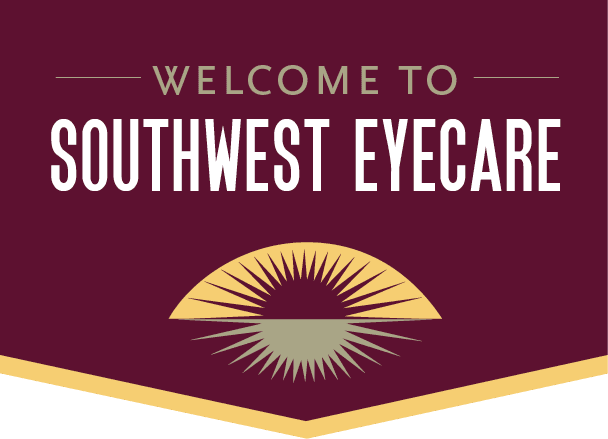
Upper eyelid surgery, known medically as upper blepharoplasty, is a procedure that improves the appearance or function of the upper eyelids. It can be performed for purely cosmetic reasons or to fix issues such as excess skin that obscures the natural fold of the eyelid.
Southwest Eyecare has helped many patients decide whether upper eyelid surgery is right for them. In this post, we’ll help you decide whether you should ask an ophthalmologist about the procedure. We’ll explore what the surgery entails, who it benefits, and what those benefits are.
What Does Upper Eyelid Surgery Entail?
Upper eyelid surgery is a tailored procedure, so the specifics of it will vary depending on the specific needs and aesthetic goals of each patient.
In general terms, the procedure involves removing or repositioning fat and trimming excess skin from the upper eyelids.
When the procedure is performed, the patient may be under local or general anesthesia, depending on the complexity of the procedure and the comfort level of the patient.
To begin the procedure, the surgeon will make precise incisions along the natural lines of the eyelids to remove excess tissue and fat. This helps to reduce scarring.
Removal of the excess tissue or fat helps with any “droopiness” or hooded appearance of the eyes.
When the surgeon is done working, they’ll close the incisions using fine sutures.
The patient will go home, carefully following the care instructions of the surgeon. After about a week, a return visit will remove the sutures to complete the procedure.
Recovery from blepharoplasty is relatively quick. Most patients are able to return to their regular activities after only a week or two. There may be swelling or bruising after the procedure, which will subside within a few weeks.
Who Can Benefit from Upper Eyelid Surgery?
Upper eyelid surgery is primarily targeted at two distinct groups. Those who are experiencing functional issues due to droopy eyelids and those who are looking to improve the cosmetic appearance of their eyes. The latter includes people who have experienced damage or trauma to the eye area that impacts the appearance of the eyelid, where blepharoplasty can help rejuvenate appearance.
Ideal candidates for the procedure are generally healthy non-smokers who have realistic expectations about the procedure’s outcomes.
Careful consultation with the surgeon will help you understand what you can expect from the procedure and allow us to help answer any questions you might have about the procedure itself.
Benefits of Upper Eyelid Surgery
As we stated previously, there are two major reasons for undergoing upper eyelid surgery: cosmetic and functional. As such, we’ll break down the benefits into those two categories as well:
Cosmetic Enhancements
- Rejuvenated Eye Area: The procedure can help eyes look more rested and alert, providing a more youthful appearance by removing droopiness and puffiness.
- Restored Eye Shape: The eyelid’s natural fold can be obscured by excess skin and fat. By removing them, upper eyelid surgery restores the natural appearance
- Increased Confidence and Self-esteem: Those who suffer from low self-esteem as a result of droopiness or puffiness in the eyelid can have that confidence boosted by the procedure.
Functional Improvements
- Improved Peripheral Vision: Droopy or sagging eyelids can impact how well a person’s peripheral vision works. Correcting these issues through surgery can make daily tasks like driving safer and easier.
- Relief from Discomfort and Strain: The constant effort to lift sagging eyelids can result in discomfort and strain. Upper eyelid surgery can create a more relaxed facial expression and reduce headaches.
Upper Eyelid Surgery in Albuquerque
Southwest Eyecare has a team of experienced surgeons who can help you if you have upper eyelid issues. If the benefits you’ve learned about in this article resonate with the experience you’re having, contact us today to set up a consultation.
One of our ophthalmologists will help you determine whether upper eyelid surgery is right for you.
